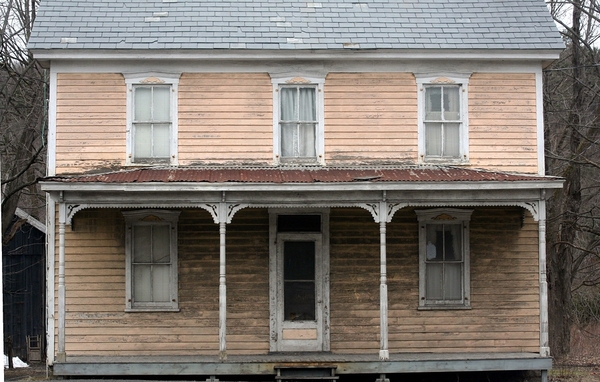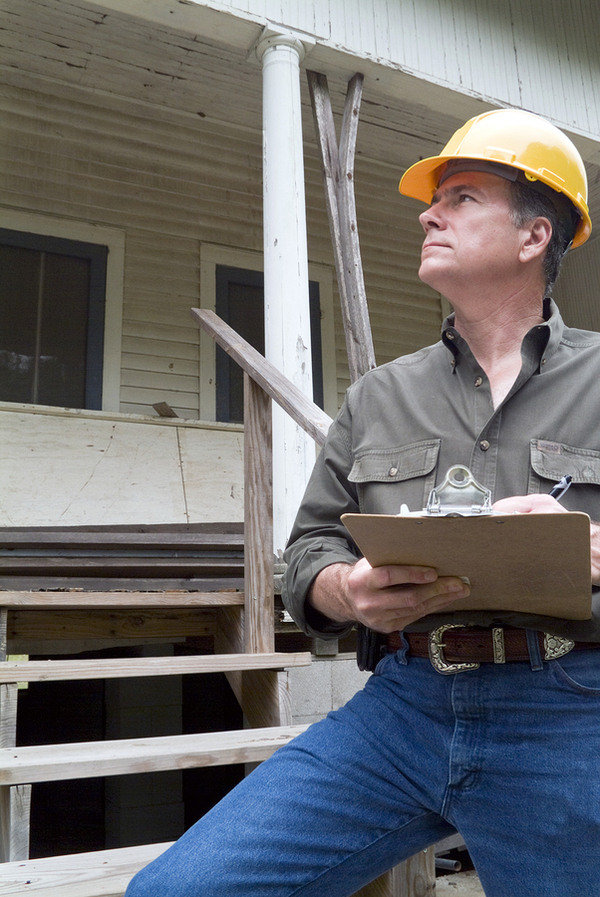
HUD houses might be ugly, but still in good, solid shape.
The sale of homes through the Department of Housing and Urban Development is a bit different than homes sold by real estate brokers. HUD homes are houses whose previous owners couldn’t pay the mortgage, and they ended up in foreclosure.
HUD homes are often considered bargains because the government wants to get rid of them and get its money back as quickly as possible. They won’t hold out for another few thousand dollars. In fact, they sell the homes through a bidding process. The highest bid wins.
Caveat Emptor
This can be great for a home buyer, but they must beware, says Realtor.com. These homes are sold as-is. Homeowners who are foreclosed upon are likely short of cash, and may not have had the money to make needed repairs and do regular upkeep.
And they are no longer in the home, so they do not have the ability to disclose important facts to potential buyers, such as if the home has any leaks, termites, structural issues, or any other problems. It’s up to the potential buyer to find any problems via a home inspection.
Differing Practices
The home inspection industry is not regulated, so no real standards of inspection exist. Some organizations like the American Society of Home Inspectors have guidelines, but inspectors join this organization on a voluntary basis.
Thus, you are likely to find a wide variety of differences among home inspectors relative to how they conduct inspections. HUD, however, has an eight-page inspection checklist for home inspectors. But HUD does not mandate that inspectors use this list, and in fact, home inspections for HUD houses are not even required.
HUD strongly recommends that buyers get a home inspection since the government cannot vouch for the integrity of the home, but the final decision rests with the potential buyer.

Consider using the HUD checklist when you’re inspecting a HUD home.
What’s on the HUD Inspection Checklist?
Tasks on the HUD checklist include checking the condition of the floor, walls, ceilings, and windows; checking for electrical hazards; noting any security concerns; and checking for the presence of lead paint in all rooms.
Home inspectors should also check to see if the home contains a range, oven, refrigerator, space for preparing food, toilets that flush, working sinks in the bathrooms, a shower or tub, bathroom ventilation, and smoke detectors.
Also on the list are checking the condition of the foundation, roof, chimney and stairs, rails and porches. The heating and plumbing should be checked to make sure they are adequate and safe. Look also for any piles of garbage or debris, or evidence of infestation. Interior air quality should also be noted.
Optional Extras
HUD includes a portion at the end of the form on which it lists optional questions that the home inspector can ask if any tenants are living in the building. Sample questions include how high-quality the kitchen cabinets are, if there are storm windows and doors, and if the yard has been maintained.
If you use the HUD checklist, you will likely be done with your inspection much more quickly than you would with an ordinary inspection. HUD focuses more on the safety of the property than any issues that might be considered cosmetic.
HUD doesn’t bargain or make repairs, so whatever is wrong with the house at the time of sale becomes the responsibility of the buyer.
So in a way, this makes it even more crucial that a home inspection is conducted carefully because the new homeowner cannot go back later and complain to the government that it didn’t know the furnace was too small for the space and the dishwasher was broken. The potential homeowner relies on you, the home inspector, to provide the information they need to decide whether to move forward with the purchase.
However, although a careful inspection is important with a HUD home, inspectors can likely skip over a lot of the minor issues they might deal with during an ordinary inspection. It’s probably not necessary to note stained carpet, cracked bathroom tiles, or scratched hardwood floors.
In regular real estate transactions, these notations are often ignored as well, considered normal wear and tear. Nonetheless, they are conventionally noted.
Doing Your Due Diligence in a HUD Inspection
ICA’s home inspection course prepares home inspectors to perform detailed, thorough inspections on homes and commercial buildings. HUD homes are bought and sold under different circumstances than a typical real estate transaction, so your inspection methods might vary.
However, keep in mind how much the potential buyer is relying on you as the home inspector to bring any serious issues to light since they have no means of recourse.
To learn more about ICA’s home inspection courses and see if they are a good fit for you, get a demo.







